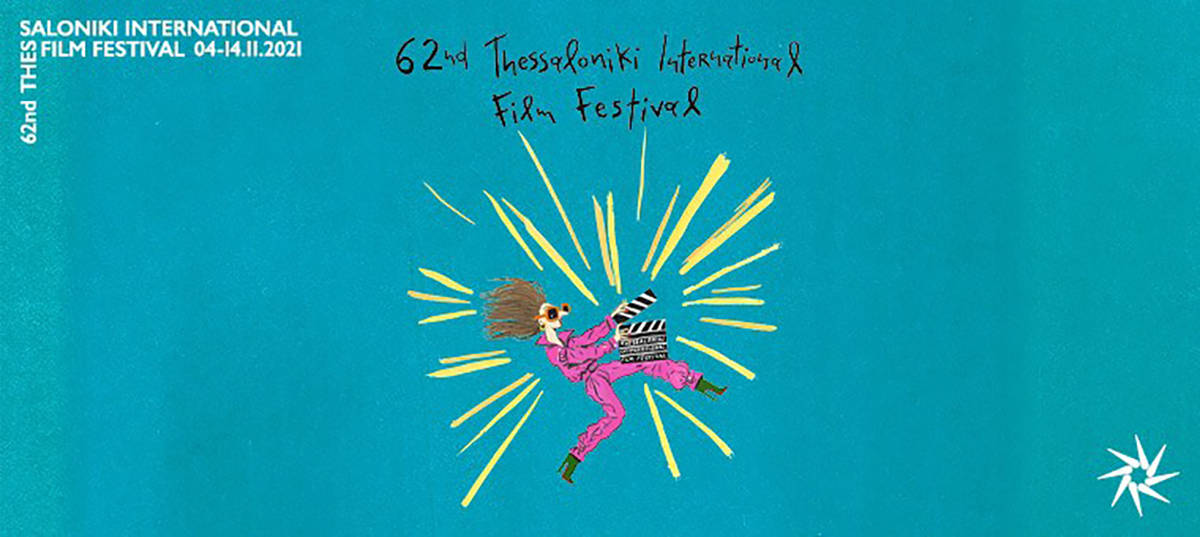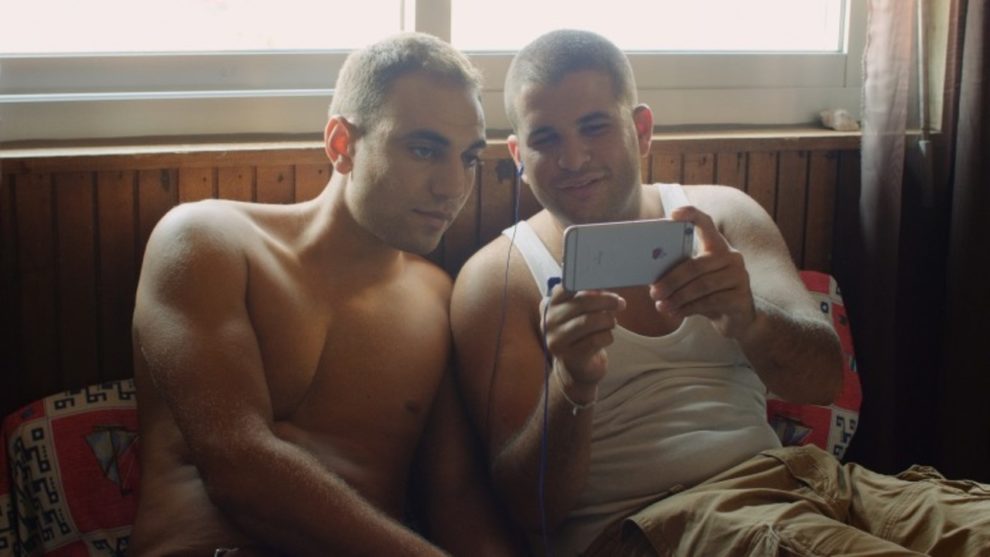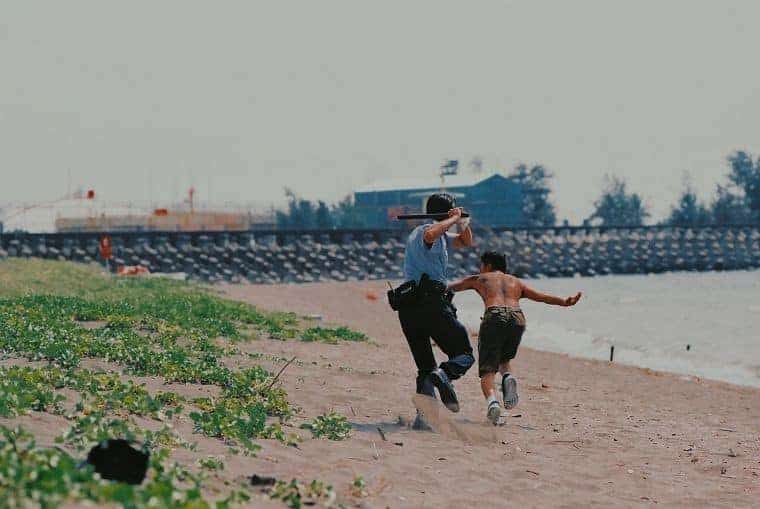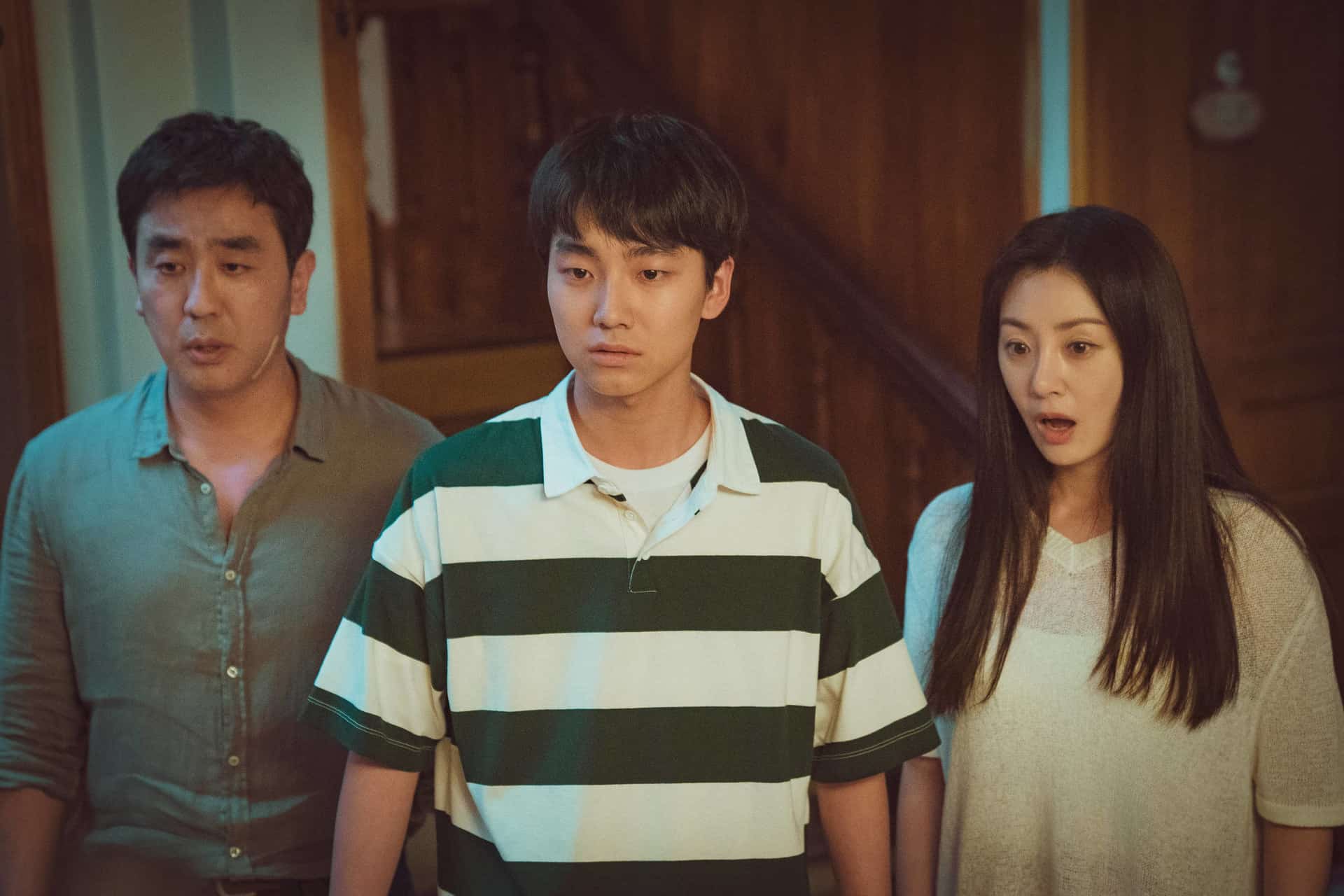Despite the current overabundance of offered films, through distribution, festivals and OTT, finding titles that actually manage to do something different while being artful is still a rather difficult pursuit. Argentinian-Lebanese first-time filmmaker George Peter Barbari, however, seems to have accomplished exactly that.
“Death of a Virgin, and the Sin of Not Living” is screening at the 62nd Thessaloniki International Film Festival

Introvert Etienne and his best friend, Adnan, are on their way to visit a prostitute for the first time, along with two other friends, Jean-Paul and Dankoura. Adnan has brokered a deal for the other three to ‘indulge”, since he was taken there by his uncle a week ago. The tension and eagerness of the four is palpable from the beginning, and the constant fights between Jean Paul and Adnan make things worse. Furthermore, their trip ends up taking much longer than they expected.

Barbari shoots a road movie that functions as a coming-of-age/rites of passage title, essentially a metaphor for the number of social and philosophical comments he wanted to make. This approach is not exactly unusual, but there is another element here that makes the film unique. Starting with Etienne's mother, the viewer begins to hear the thoughts of the people appearing in the movie, with the majority of them talking about their past and future life, up to the moment they die. Grief, regret, and a permeating pessimism, mostly connected with death, derives from these narrations, which also include the four protagonists and a number of people they meet on their way. This aspect, along with the excellent camera work by DP Karim Ghorayeb, which is characterized by a rather fitting, documentary-like fluidity, are the elements that make the movie truly stand out, both for the overall visual presentation, and the context.
Regarding this second aspect, this approach in the depiction of the characters allows for a rather deep analysis of them, since the thoughts heard in the movie are those people only admit (reveal if you prefer) to themselves. That these “secrets” are combined with the future of those in focus works quite well also in entertaining terms, as the majority of the thoughts/stories heard are quite interesting and completely different on occasion than what the persons in focus reveal on screen. Particularly in the case of Etienne, who emerges as the protagonist through this approach, the highlighting of his inner thoughts reveals a level of profundity and pain that would be impossible for someone as introverted as him to express vocally. Particularly his thoughts close to the end of the movie seem to synopsize Barbari's regarding sex and particularly the first time.
Apart from this approach though, the actual dialogue between the four friends also ends up in social commentary, with Jean-Paul being the main medium here, as his conservatism (he has just kissed his girlfriend two times in 2 years, as he is waiting to get married first to proceed physically), racism (his attitude when they interact with a bartender whom they perceive as gay) and overall hypocrisy seems to represent some of the worst aspects of Lebanese society, along with the ways prostitution seems to work in the country. Jean Paul Franjieh in the role is quite good in highlighting his misinformed buffoonery, in complete contrast with the equally good, but completely opposite in its laconicness rendition of Etienne Assal's Etienne.
The combination of all the aforementioned also benefits the most by Inaam Attar and Barbari's editing, which connects them in a way that induces the film with a pleasant fluidity and a relatively fast pace that is only interrupted when the thoughts of the characters are heard. Granted, there are some moments that Barbari loses his command of the film, with the zoom-in on Jean Paul's face and the prolonged sequence of the sea close to the end being the most evident, but in general, his overall effort is commendable, particularly when one considers that this is his feature debut.
“Death of a Virgin, and the Sin of Not Living” is a very intriguing, original film, and one that ends up being quite easy to watch, despite its distinct art-house aesthetics.















